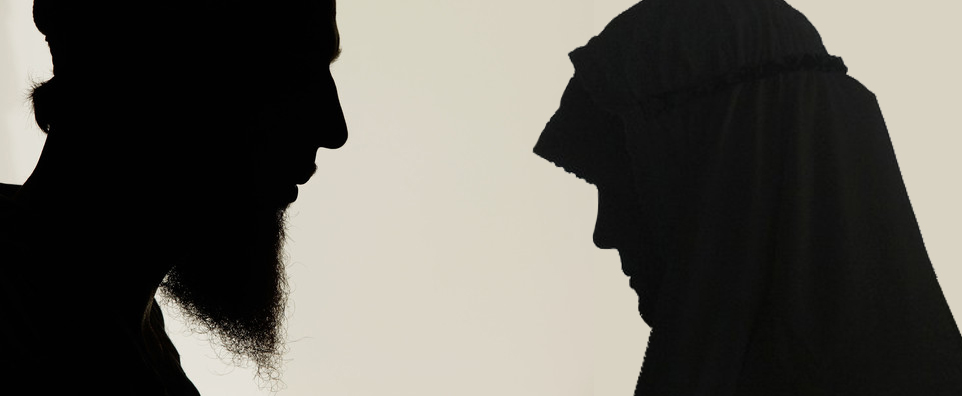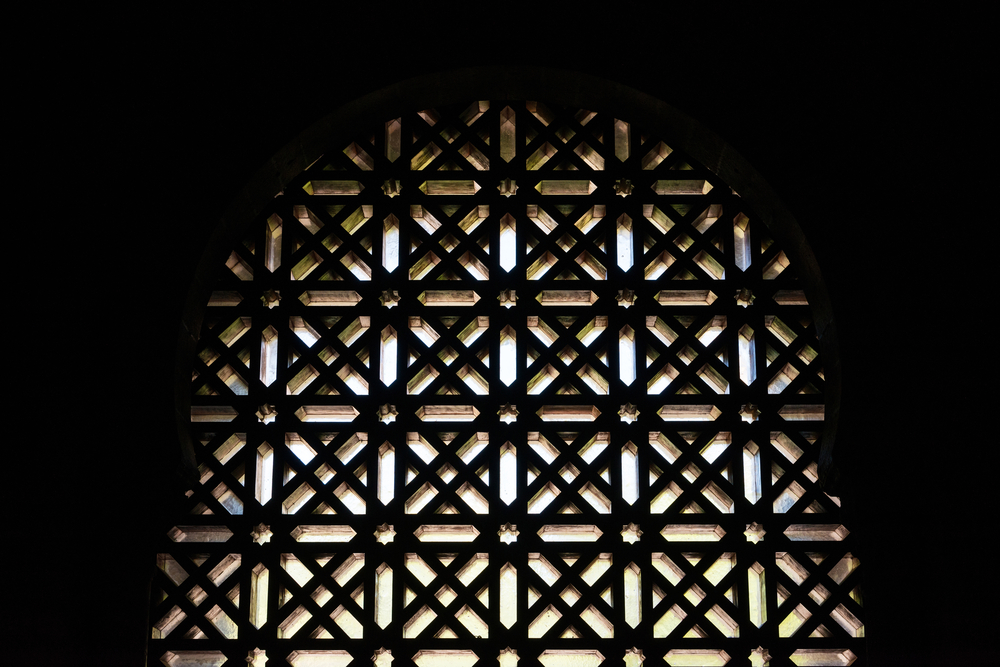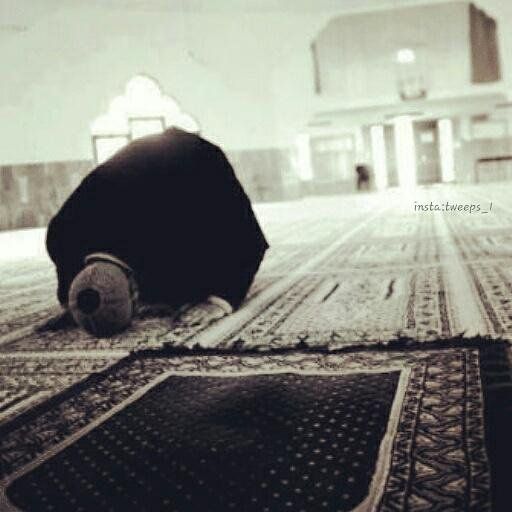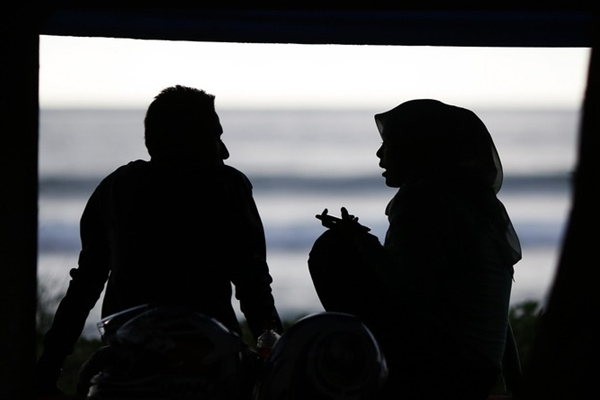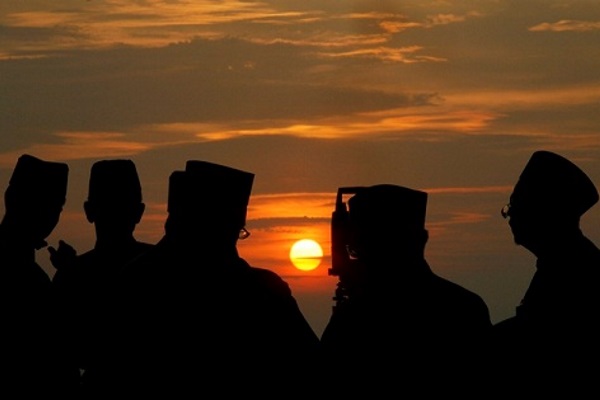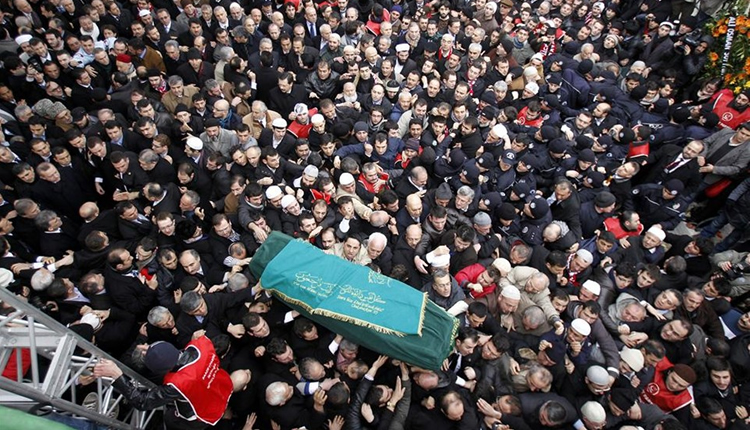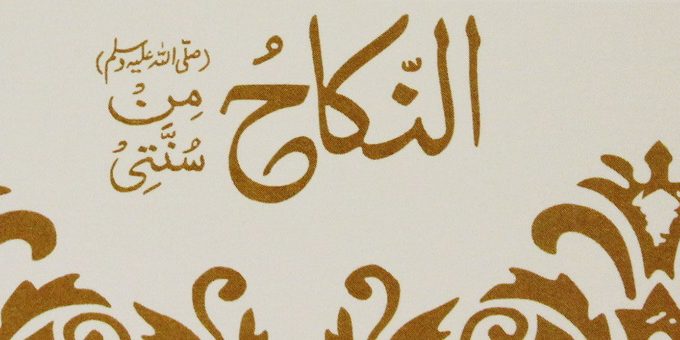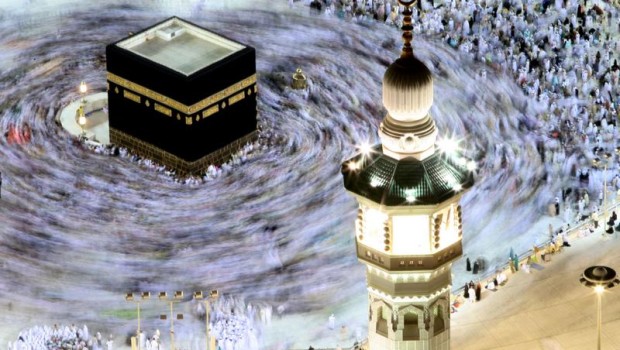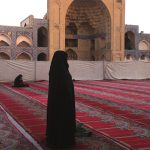QUESTION:
How should one behave on their wedding night? any duas before and after intercourse, manners/etiquette during intercourse etc.
ANSWER:
Allāh Almighty says:
ہُنَّ لِبَاسٌ لَّکُمۡ وَ اَنۡتُمۡ لِبَاسٌ لَّہُنَّ ؕ عَلِمَ اللّٰہُ اَنَّکُمۡ کُنۡتُمۡ تَخۡتَانُوۡنَ اَنۡفُسَکُمۡ فَتَابَ عَلَیۡکُمۡ وَ عَفَا عَنۡکُمۡ ۚ فَالۡـٰٔنَ بَاشِرُوۡہُنَّ وَ ابۡتَغُوۡا مَا کَتَبَ اللّٰہُ لَکُمۡ
“They are coverings for you and you are coverings for them; Allah knows that you were deceiving yourselves (in this respect), so He accepted your penance and forgave you; so cohabit with them and seek what Allah has destined for you”
[Surah al-Baqarah verse 187]
The Prophet of Allāh (صلى الله عليه وسلم) has said:
“Having intercourse (with one’s wife) is a charity.” They (the Companions) asked, “O Messenger of Allāh (صلى الله عليه وسلم), if one of us fulfills his desire, is there reward in that?” He replied, “Do you not see that if he does it in a Harām way he will have the burden of sin? So if he does it in a Halāl way, he will have a reward for that.”
[Narrated by Muslim, 1674]
Before one intends to have intercourse with his wife, the husband should make sure that she is not in the state of menstruation. Therefore he will have to ask her. It is also the duty of the wife to inform her husband. It is Harām to have intercourse whilst the wife is menstruating. Allāh Almighty says:
وَ یَسۡـَٔلُوۡنَکَ عَنِ الۡمَحِیۡضِ ؕ قُلۡ ہُوَ اَذًی ۙ فَاعۡتَزِلُوا النِّسَآءَ فِی الۡمَحِیۡضِ ۙ وَ لَا تَقۡرَبُوۡہُنَّ حَتّٰی یَطۡہُرۡنَ ۚ فَاِذَا تَطَہَّرۡنَ فَاۡتُوۡہُنَّ مِنۡ حَیۡثُ اَمَرَکُمُ اللّٰہُ ؕ اِنَّ اللّٰہَ یُحِبُّ التَّوَّابِیۡنَ وَ یُحِبُّ الۡمُتَطَہِّرِیۡنَ
“And they ask you the decree concerning menstruation; say, “It is an impurity, so stay away from women at such times, and do not cohabit with them until they have cleansed themselves; so when they have cleansed themselves, cohabit with them the way Allāh has determined for you”; indeed Allah loves those who repent profusely, and loves those who keep clean.”
[Surah al-Baqarah verse 222]
Many women (due to shyness) do not inform their husbands (especially at the first night of marriage) that they are in state of menstruation. And even after informing, the husbands do not respect this. This should not happen at any cost.
If the wife is in menstruation then it is totally forbidden to have intercourse with her. From those sins which Islam has classified as ‘major’, one of them is having sexual relations in the state of menstruation. It is prohibited for the man to touch his wife anywhere between the navel and the knee except through a barrier like a cloth etc.
Husbands should also be aware of the feelings and state of women. Many are only concerned about themselves, and do not see whether the wife is ready to have an intercourse (she might be ill etc).
“When a man holds his wife’s hand (to delight her) then for him are written 10 rewards. If he places his hand on her neck (out of love) for him are written 10 rewards, and when he cohabits with her then it is better than the world and what is in it.” [Ghunya al-Ţālibīn]
1) Before undressing, the couple should make fresh Wudū (remove any unpleasant smell from the mouth), pray 2 Rak’at of prayer (to thank Allāh Almighty) and then the husband should recite the following:
– Bismillāhil ‘aliyyil Adhīm Allāhu Akbar Allāhu Akbar
– Surah Ikhlās once.
– When they are ready to go to bed, the groom should put his hand on the bride’s forehead and pray:
بِسْمِ اللَّهِ اللَّهُمَّ جَنِّبْنَا الشَّيْطَانَ ، وَجَنِّبِ الشَّيْطَانَ مَا رَزَقْـتَنَا
“Bismillāhi Allāhumma Jannibnash-Shayţān Wa Jannibish-Shayţān Mā Razaqtanā”
According to a narration, if a husband was to pray the above prayer before intercourse, and if a child has conceived, Allāh will protect the child from devil. [mentioned in al-Bukhārī]
2) Both should have a good intention (example, fulfilling the rights of the partner, having pious children etc.)
3) Apply perfume/fragrance and be presentable for each other.
4) They should then engage themselves in kind talk and foreplay (cuddling, kissing, undressing each other, caressing the breasts etc) in order to arouse each other.
5) One should be covered (using a cloth/blanket/sheet) and should not be in the open.
Hadīth:
“When one of you goes in unto his wife, let him be covered, for if he is not covered, the angels feel shy and depart, then if they have a child, the Shayţān will have a share of him.” [al-Tabarānī in al-Mu’jam al-Awsaţ]
“When one of you goes in unto his wife, let him cover and not be naked like donkeys.” [al-Bayhaqī]
6) There is no time allocated for intercourse. Though the physicists say the latter part of the night (before Fajr) is the best time.
7) One should not have intercourse on a full or on an empty stomach.
8) One should avoid having intercourse on 14th and 15th of each lunar month or during the time of Adhān.
9) You are also allowed to touch each others private parts and if it’s done with a good intention then it will become an act of reward.
10) One should not face the Qiblah during intercourse.
11) When the husband intends to have intercourse, he should take it easy on his wife. Satisfying one’s wife is very important and engaging in sexual intercourse quickly and hastily is not the correct way.
12) It is permissible for the husband to have intercourse with his wife in her vagina in whatever manner he wishes, from behind or from the front, on the condition that it is in her vagina, which is the place from which a child is born. The Prophet of Allāh (صلى الله عليه وسلم) has said,
“From the front or from the back, so long as it is in the vagina.” [al-Bukhārī]
13) It is not permissible (Harām) for the husband under any circumstances whatsoever to have intercourse with his wife in her back passage (anal). According to the Ahadith, such a person is cursed.
14) One should avoid having intercourse standing up (like animals) or in sitting position (which is not healthy for the body).
15) The wife should be beneath the husband (lying on the bed) and the husband should be on top of the woman. This is more appropriate and befitting.
16) One should not talk during intercourse. It is feared that the child conceived during the act may become dumb or may have speech problems.
17) During the intercourse, the husband and wife should not think of someone else except their spouse.
18) The spouses are allowed to touch any part of each others body. But one should not look at the privates whilst engaged in intercourse. This is weaken the eyesight, and the eyesight of the child.
19) There is no harm is kissing the breasts, again with a good intention, it will become an act of reward. But one should be careful that the milk does not go down his throat. Though drinking wife’s milk is Harām, it will not affect the marriage.
20) One should take care of one’s wife’s sexual needs. This is so that she does not get attracted to others and helps protect marriage bond.
21) When ejaculation takes place, the husband should seek refuge of Allāh from the devil (in mind; not verbally).
22) One should not move away after ejaculation, because it takes time to fulfill the wife’s sexual need and desires. Rather the husband should remain engaged in the act.
23) After the intercourse, the spouses should clean their private parts using a separate cloth and the husband should urinate so that no semen is left inside his private part.
24) One should not immediately use cold water to bathe as the body during intercourse becomes warmer. Rather one should relax or lie down for 10 minutes and thereafter bathe.
25) One should not drink water immediately after intercourse.
26) If after intercourse (before bathing) one is in need of eating, then he or she should wash the mouth and hands thoroughly and then eat food.
27) It is Mustahab that Ghusl al-Janābat should be performed soon after sexual intercourse, and the sooner it is performed the better. Also, if one would like to have sexual intercourse more than once in one night, it is better that after every time, they perform Ghusl. However, if this is not feasible, it is recommended that one should do Wudū before engaging in the act again.
28) There is no harm for both spouses to have a shower/bathe themselves together.
29) If the wife is in menstruation, it is not permissible to have intercourse with her after her blood flow ceases and before she has made Ghusl (bathing).
30) It is Makruh (disliked) to use contraceptives in normal conditions or for simple reasons. If there is danger to the mother with a pregnancy and an expert, religious Muslim doctor gives the opinion that contraceptives be used, then it is not disliked. However, using a permanent method of contraception is not at all allowed for either men or woman like vasectomy, etc. [See Q-ID0177 Having sex whilst pregnant & use of contraception]
What aspects makes it obligatory to bathe
There are five aspects that make it obligatory for a person to have a bath, and they are as follows; –
- The ejaculation of sperm.
- To have a wet dream (nocturnal emission).
- The head of the penis to enter the vagina, whether it be with or without lust, with or without orgasm, the bathing would be obligatory on both.
- To become clean from menstrual pause (period).
- To become clean from blood after child birth.
Three obligatory aspects of bathing
There are three obligatory aspects in bathing, and are as follows;
1) To perform mouthwash so that every single part of the inside of the mouth from the beginning of the lips up to the throat is cleaned with water. Water must reach the gaps between the teeth, the gums, all the sides of the tongue and the edge of the throat. If you are not fasting then you must gargle so that the water reaches clearly all parts. If there is anything stuck in the teeth then unless it is impossible to release or would cause serious pain it is necessary that they are removed, because without doing this the bath won’t count and therefore the Salāh won’t count.
2) To clean the nose out with water. Meaning to suck up water into both nostrils until it reaches the bone, so that not even a hair or its equivalent size remains dry, otherwise the Ghusl will not valid. If the nose is pierced then the water must reach the hole as this is also necessary. If mucus has dried in the nose then to release it is necessary and to wash the nostril hair is also necessary.
3) To wash every single part of the body. Meaning to make sure water washes all the body up to and including the soles of the feet, ensuring that every hair and every pimple is washed, because even if only one hair or it’s point’s equivalent remains dry, the bath will not count. If you are wearing a ring or nail varnish etc it is necessary you remove them so there is no barrier between your skin and the water.
May Allāh Almighty enable us to spend our lives according to the teachings of the Holy Qur’an and the Prophet (صلى الله عليه وسلم), Āmīn.
Answered by Mawlana Mohamed Husein Qadri
More Question and Answers relevant to Marriage:
[Q-ID0011] He said ‘I divorce you’ – 3 times, am I still his wife?
[Q-ID0025] Cousin marriages and finding a good spouse
[Q-ID0033] How do a Husband and Wife pray together?
[Q-ID0034] Can I speak to my fiancé over the phone?
[Q-ID0091] Changing my surname to my husbands after marriage
[Q-ID0107] Having baby scans and general advice on pregnancy
[Q-ID0137] Can we hold our spouses hand in public?
[Q-ID0168] Separating tradition from religion at weddings, what is allowed?
[Q-ID0187] What is the ruling on Engagements, exchanging rings and other gifts?
[Q-ID0189] My Husband said ‘I divorce you’ three times. Has divorced occurred?
[Q-ID0195] A woman got married with her Father & brothers absent – is the nikah valid?
[Q-ID0227] Is Islam a religion that “treats its women unfairly and without equal rights.”?
Also see:
[Q-ID0016] What steps can I take to stop masturbating? I cannot afford to get married yet.
[Q-ID0105] Is oral sex allowed in Islam?
[Q-ID0200] Can a husband use the internet for sexual gratification with his wife?
[Q-ID0238] What are the boundaries of interaction between Husband & Wife whilst Fasting?
[Q-ID0254] Is it permissible for a man to get masturbated by his wife?
